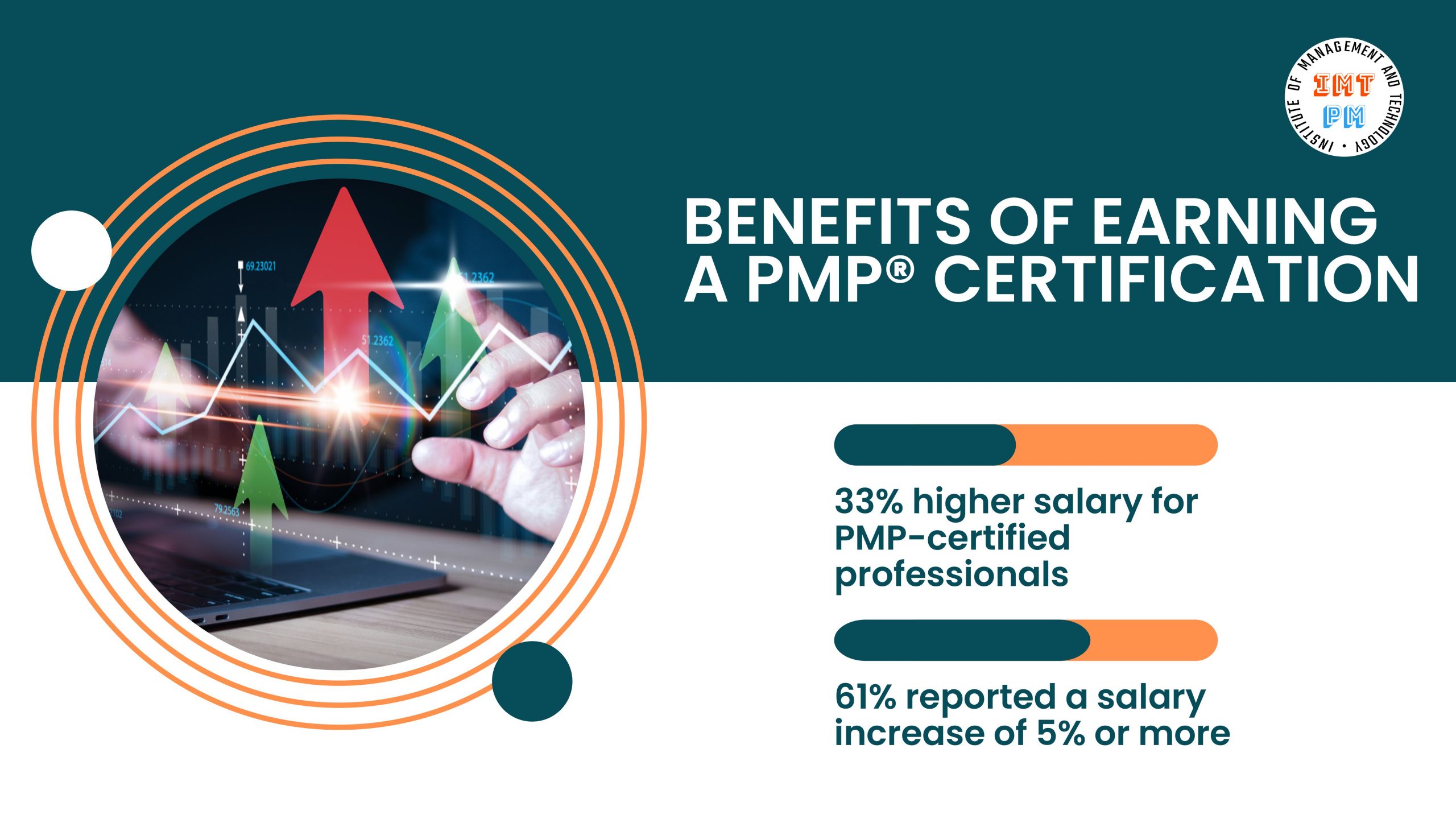
The Importance of PMP Certification in Project Management
In today’s project management world, the Project Management Professional (PMP®) certification from the Project Management Institute (PMI®) has become a gold standard, affirming the skills and expertise of project management professionals. This article explains why the PMP certification is so important in the field of project management and how you can achieve it through reputable training sources like IMT-PM.
What is PMP®?
The PMP® certification is one of the most widely recognized project management credentials worldwide. Developed by PMI®, this certification not only assesses theoretical knowledge but also evaluates the practical skills of project managers in leading and successfully executing projects.
Benefits of PMP Certification
1. Enhanced Career Opportunities
PMP® certification opens up numerous attractive career opportunities across various industries such as IT, construction, finance, and more. Employers often prefer candidates with PMP certification because it demonstrates a high level of professionalism and effectiveness in project management.
2. Improved Project Management Skills
Achieving PMP certification requires a strong grasp of project management principles, from planning, executing, and monitoring to closing projects. The learning and preparation process for the PMP® exam helps develop leadership, problem-solving, and time-management skills.
3. Increased Salary
Earning a PMP® certification can have a significant effect on your salary. According to PMI®’s 2023 Salary Survey, PMP®-certified professionals earn, on average, 33% more than their non-certified peers across 21 countries. Additionally, many of those surveyed reported salary increases, with 61% of them seeing a raise of 5% or more. These statistics demonstrate the substantial financial benefits of obtaining PMP certification, not only in terms of salary but also in enhancing career advancement opportunities.
4. Expanded Professional Network
When you join the PMP® community, you gain access to a global network of thousands of project management professionals. This network not only facilitates knowledge sharing but also creates opportunities for collaboration and career advancement.
How to Obtain PMP® Certification
1. Meet Basic Requirements
To register for the PMP® exam, you need one of the following:
- A bachelor’s degree with at least three years of project management experience; or
- An associate degree with at least five years of project management experience.
2. Enroll in a PMI® Authorized PMP® Exam Prep course
Selecting a reputable training provider, such as IMT-PM, is essential to ensure you learn from top experts and gain all the necessary knowledge to pass the PMP® exam. Learn more about IMT-PM’s PMP® exam prep courses here.
3. Prepare for the Exam
Use high-quality study materials, participate in exam preparation courses, and practice sample exams to build your confidence and abilities before test day. For more tips on passing the PMP® exam on your first attempt, visit this guide.
4. Register and Take the Exam
Once fully prepared, you can register for the PMP® exam through PMI®’s official website.This exam will assess your project management knowledge and skills. For a comprehensive guide on completing your PMP® application, visit here.
Conclusion
PMP® certification is more than just a credential; it’s a testament to your commitment and expertise in project management. Holding this certification offers significant benefits, from career opportunities to attractive salary prospects. To efficiently achieve PMP certification, choose reputable training sources like IMT-PM to receive the best support on your journey to achieving this prestigious goal.
Feeling Nervous or Stressed About Your Upcoming PMP® Exam? You’re not alone. We’ll make sure you feel confident about your PMP® exam day.
Explore our PMI® Authorized PMP® Exam Prep training!
Let’s pass PMP® Exam easily by studying PMI® Official Course!






